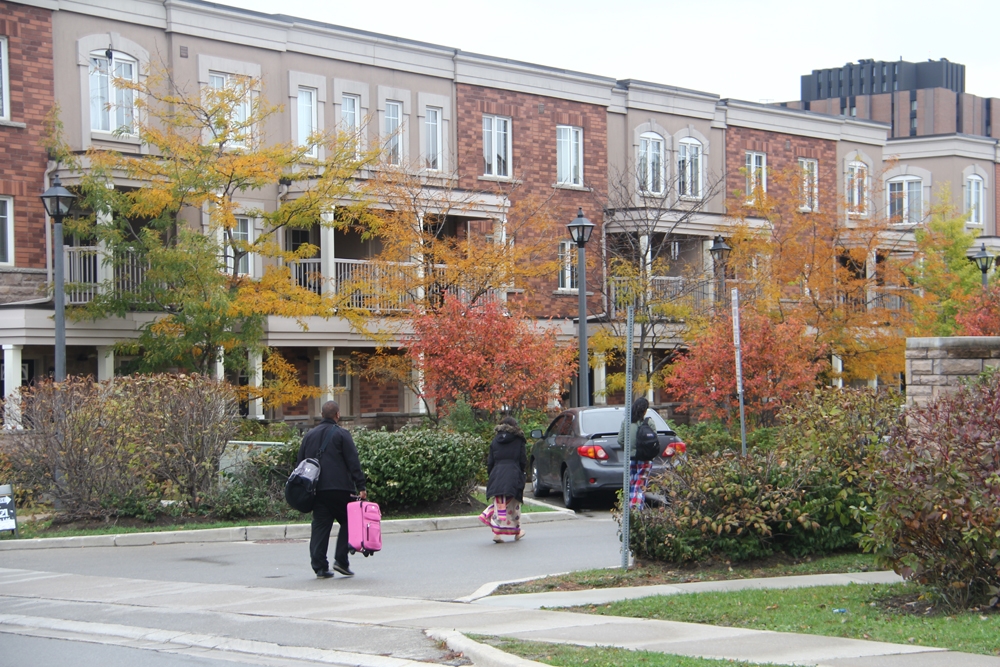Farah Isahack | Contributor
Featured image: Three months into the school year, students are gaining insight on whether the money saved during commuting is worth the lost experiences on campus. | Amir Yazdanparast
York has been infamously dubbed the commuter school of the GTA. A reported 63 per cent of students rely on public transit, and research suggests that students living far from campus are more likely to skip classes. Living on campus seems like the alternative, but with residence costs starting at $5,356, it comes as no surprise that many students live at home with parents.
“I think that living with your parents during your undergrad is smart,” says Sabrina Giorgio, second-year English student.
“School is stressful and I personally found that being able to talk to my parents in person alleviates the overwhelming and hopeless feeling that assignments sometimes bring about.”
The cost of university tuition has increased dramatically in the last two decades and is projected to rise 13 per cent for Canadian universities over the next four years. This added stress leaves students balancing employment with school.
Paired with the stresses of familiarizing with a new environment, and the occasional midlife crisis, it’s clear to say that students are getting a lot more than they bargained for.
“Living at residence not only provides a strong opportunity to connect with your peers at a personal level, but there’s a greater chance to network and be true to yourself
as you socialize into a more adult lifestyle,” says Kevin Ho, a fourth-year kinesiology student.
Many commuter students can attest that getting involved in on-campus activities can become increasingly difficult. With club meetings and events generally scheduled in the evening, it can become difficult for students to attend, especially after a long day of classes and a long commute ahead.
“I feel like I’ve missed out on a lot of fun because I commute. You miss a lot of events because you can’t stay out later than the TTC,” says Chris Muradyan, third-year business student.
“You can’t really make friends because […] you don’t get the same experience as meeting as many people if you would live on campus versus commuting. You just have to get involved and try a little harder,” adds Muradyan.
But is this reason enough to forego living at home and live on campus?
What would otherwise be considered an easy decision for commuters to join social events can turn into something that takes hours, even days, to deliberate if it is worth attending.
Faziena D’souza, York alumna, only realized how isolated she was after she graduated.
“I never really took in people around me or tried to at all. It was all about getting in and out, and then I graduated and left. It was like growing up too fast when I had the opportunity to slow down and take it in,” she adds.
Making the decision to stay at home or live on campus comes down to what you prioritize. Whether you’re commuting or live on campus, it is important to be cost-efficient while simultaneously taking advantage of opportunities that may arise on campus.
Staying past 6 p.m. on campus to attend a club’s meet-and-greet, or booking an appointment with the Writing Centre can go a long way in helping you shape your university experience. They can also work to set the framework to plan your life outside of York.
We are all here to gain knowledge and experience, and events and opportunities like this only work to enrich your experiences at York.




